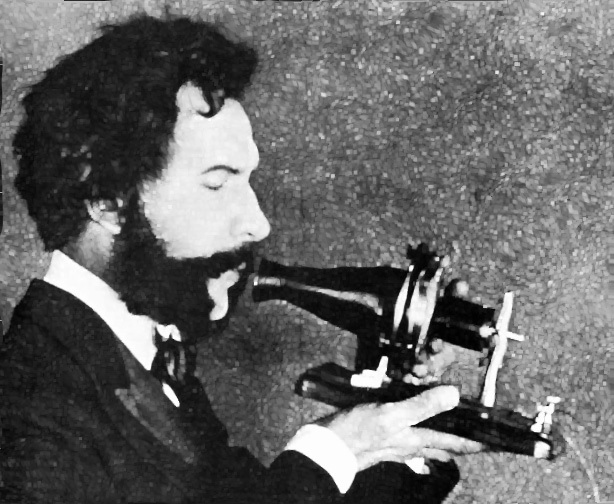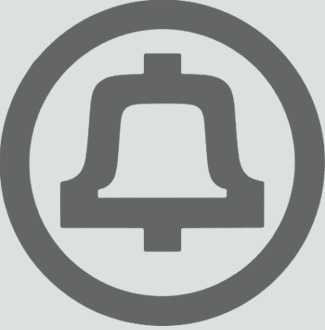Telecom Informer
by The Prophet
Hello, and greetings from the Central Office!
Today, I am writing to you from the opposite side of the Indian Ocean from the Seychelles.
I'm on Christmas Island. Although it's technically part of Australia, you have to pass through Australian Customs and Immigration to get here. In fact, Christmas Island is so remote that it has its own famous .cx top-level domain!
Although Christmas Island is practically a stone's throw from Bali (about 650 miles), there aren't any direct flights. There are two regularly scheduled flights a week to Perth, Australia, which is about 1600 miles away. There are also charter flights to Jakarta, which usually run once a week. They're really expensive, running around USD $500 round trip from Jakarta and over $750 round trip from Perth (which, in and of itself, is a $300 flight away from Sydney). As locations go, it's about as close to the middle of somewhere that you can be while remaining in the middle of nowhere.
In addition to it being complicated for people to get to Christmas Island, it's also tough to get cargo on and off the island. Phosphate is pretty much the only export, and specialized transport ships and conveyors are used. For sea cargo, there is a crane. The harbor is poorly sheltered, though, so loading can only happen when the seas aren't rough. They're often rough. Right now, large waves are slamming into the rocky coast, sending spray almost as high as the cab of the cranes, so I'm fortunate that the piece of equipment I'm here to provision was offloaded from a cargo ship yesterday (during a relatively calm period) and is sitting safely in a container on shore.
If you think getting here is expensive, the costs of living on the island are even higher. Nearly everything must be imported from the Australian mainland, and the cost of transportation is very high. Gasoline is $6 per gallon. A head of lettuce costs $13.50. And Internet is similarly expensive. Basic satellite connectivity (through the satellite Internet provider Speedcast) costs residents over AUD $100 per month. Like all satellite Internet, it's strictly metered and very slow. Residents ration their Internet usage, jealously guard the security of their Wi-Fi access points (lots of them are named "Get Your Own Wi-Fi" or something similar), and limit their video streams to 720p.
It's not just Internet that comes via satellite. Everything does. Television and radio transmissions are received from the Australian mainland via satellite dishes (one each for two TV stations and the radio), but these don't always work reliably. Satellite transmissions can be impeded by heavy rain and storms, and the island often has both. On top of this, Telstra, the local telephone and GSM provider, uses satellite. They have only a single satellite dish for connectivity to the rest of the world and it goes down frequently, at least once a month for a few hours. Speaking of mobile connectivity, it's GSM only - and only voice and text. It's like a time warp to the 1990s.
Christmas Islanders are, however, a hardy and creative bunch and they have a solution to their telecommunications problems: blackboards! There is a town square of sorts with a roundabout in the middle. The buildings there are covered in blackboards and these are used for community-wide news and notifications. The islanders are avid users of Facebook as well, but the on-island blackboards are treated as the "source of truth" and can be updated when electronic communications are unavailable.
So, given this context, you can probably imagine the excitement of the island's residents that a fiber-optic cable has finally landed on the island. It promises faster, less expensive, and possibly even unmetered Internet access, maybe even at speeds up to 20 Mbps. The cable is here, and packets are flowing. However, progress has been slower than anyone would like in deploying the infrastructure for most of the islanders to use it. The "last mile" infrastructure in place largely isn't suitable for high-speed broadband, so a lot of work (and working out the costs) needs to be done before residents can enjoy the benefits. The first customer is the Australian government.
The Australian government's interest in this part of the world is strategic, and the region is growing in strategic importance. You can draw your own conclusions about what this means for the future. The first facilities that have been brought online are the Australian government's offices, police station, school, recreation center, airport, and hospital. Subsequent facilities to be brought online are likely to be, as you can imagine, ones that the Australian government considers strategically important. So, for no particular reason, I'm here to install a thing in a place for a client. Based on their confidentiality requirements, I hope you understand that I won't be going into details.
There's only one problem. Crabs. It was just my luck to arrive at the beginning of the red crab migration season, and the island is absolutely swarming with them. Christmas Island is inhabited by millions of land crabs, and they all spawn at the same time each year. This means that the land turns into a river of red. It's an absolutely astonishing spectacle: every surface is covered with them. They are everywhere and get into everything. You have to put towels under the door to keep them from crawling underneath (or mobbing the door every time you open it) and coming into your living space! Making matters even more complicated, these are a protected species. You can't run them over and kill them (and the islanders also consider it bad luck), so you have to push them out of the way. The island more or less shuts down while red crab migration is underway and this can take over two weeks.
I don't have time to wait, obviously. And movement can still happen during the red crab migration, albeit carefully and deliberately. To get around during the red crab migration, islanders drive very slowly. Their vehicles are improvised for the local conditions, and someone literally hangs off the front of the vehicle with a rake to move crabs out of the way. Or, in the case of baby crabs when they're migrating the other direction, leaf blowers! It took me two hours to get into town from the airport yesterday, and I have twice as far to go today. And that's round trip, which means that most of my day will be spent just getting to the job. Once I'm there, I'll need to go through mandatory training, and be escorted everywhere, so I have to hope that the person who is supposed to train me and the person who is supposed to escort me were able to make it to work (fortunately, they commute by bus and it's pretty well organized, so I'm pretty confident it will happen).
Everything is - allegedly - in place for me to do the job. We shipped the equipment I'll need, and also a spare (they'll need one on the island anyway, and I'll want to have it available in case of a bad part). While transportation hadn't been sorted out before I arrived, the locals have a typical problem-solving Australian attitude which is refreshing compared to some of the nearby locales I work in. We have some sort of golf cart with a snowplow-like attachment, a couple of guys with long rakes, and a giant truck that is ordinarily used for phosphate mining operations (the island is host to a large mine). The equipment is on the dock. Everything else I need is at the site. Even if we need to come back for a spare, I'm confident I'll make my flight back to Perth in a few days.
And with that, I'll sign off from Christmas Island!
This time, it's a short visit to a tropical island, and I don't have any excuses to stay longer than planned. However, I'll be making the most of it before I leave.
Have a safe winter in whatever frozen tundra where you're currently shivering, and I'll have a Bundaberg for you on the beach!

